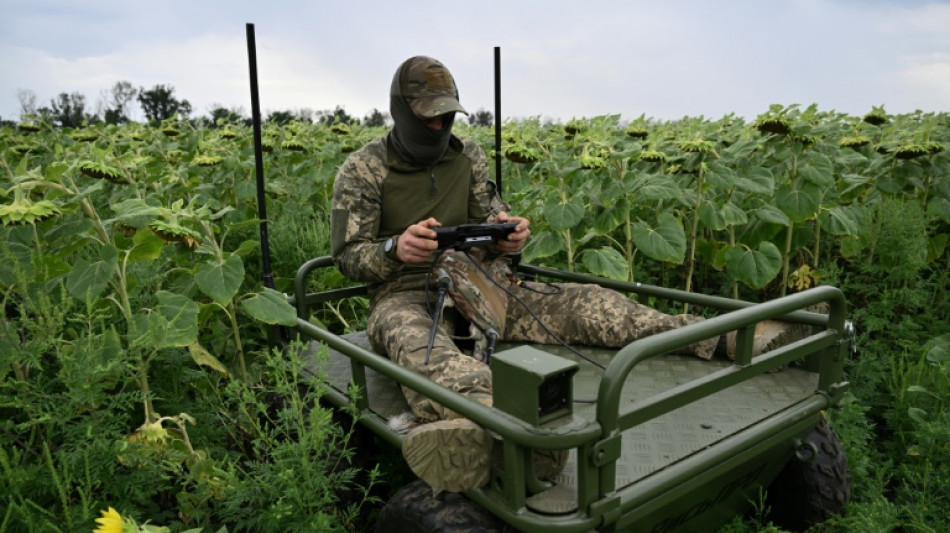
-
 Extreme rains hit India's premier Darjeeling tea estates
Extreme rains hit India's premier Darjeeling tea estates
-
Raducanu retires from opening match in Wuhan heat with dizziness

-
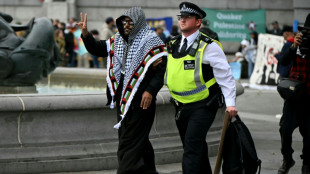 UK's Starmer condemns pro-Palestinian protests on Oct 7 anniversary
UK's Starmer condemns pro-Palestinian protests on Oct 7 anniversary
-
Tokyo stocks hit new record as markets extend global rally

-
 Japan's Takaichi eyes expanding coalition, reports say
Japan's Takaichi eyes expanding coalition, reports say
-
Canadian PM to visit White House to talk tariffs
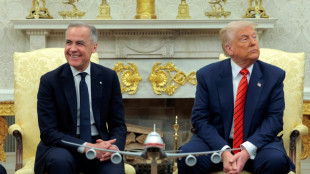
-
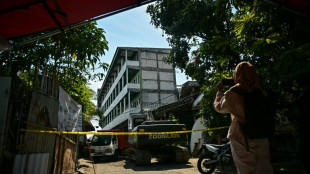 Indonesia school collapse toll hits 67 as search ends
Indonesia school collapse toll hits 67 as search ends
-
Dodgers hold off Phillies, Brewers on the brink

-
 Lawrence sparks Jaguars over Chiefs in NFL thriller
Lawrence sparks Jaguars over Chiefs in NFL thriller
-
EU channels Trump with tariffs to shield steel sector
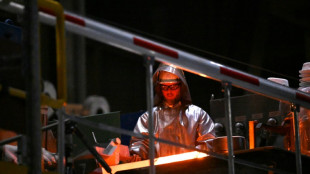
-
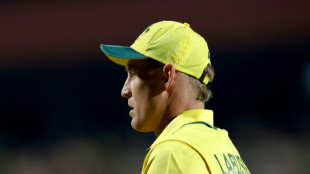 Labuschagne out as Renshaw returns to Australia squad for India ODIs
Labuschagne out as Renshaw returns to Australia squad for India ODIs
-
Open AI's Fidji Simo says AI investment frenzy 'new normal,' not bubble

-
 Tokyo stocks hit new record as Asian markets extend global rally
Tokyo stocks hit new record as Asian markets extend global rally
-
Computer advances and 'invisibility cloak' vie for physics Nobel

-
 Nobel literature buzz tips Swiss postmodernist, Australians for prize
Nobel literature buzz tips Swiss postmodernist, Australians for prize
-
Dodgers hold off Phillies to win MLB playoff thriller

-
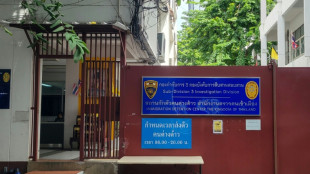 China exiles in Thailand lose hope, fearing Beijing's long reach
China exiles in Thailand lose hope, fearing Beijing's long reach
-
Israel marks October 7 anniversary as talks held to end Gaza war

-
 Indians lead drop in US university visas
Indians lead drop in US university visas
-
Colombia's armed groups 'expanding,' warns watchdog

-
 Shhhh! California bans noisy TV commercials
Shhhh! California bans noisy TV commercials
-
Trump 'happy' to work with Democrats on health care, if shutdown ends

-
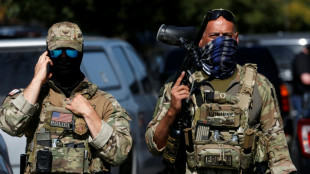 Trump says may invoke Insurrection Act to deploy more troops in US
Trump says may invoke Insurrection Act to deploy more troops in US
-
UNESCO board backs Egyptian for chief after US row

-
 Unreachable Nobel winner hiking 'off the grid'
Unreachable Nobel winner hiking 'off the grid'
-
Retirement or marketing gimmick? Cryptic LeBron video sets Internet buzzing

-
 CAF 'absolutely confident' AFCON will go ahead in protest-hit Morocco
CAF 'absolutely confident' AFCON will go ahead in protest-hit Morocco
-
Paris stocks slide amid French political upheaval, Tokyo soars

-
 EU should scrap ban on new combustion-engine sales: Merz
EU should scrap ban on new combustion-engine sales: Merz
-
US government shutdown enters second week, no end in sight

-
 World MotoGP champion Marquez to miss two races with fracture
World MotoGP champion Marquez to miss two races with fracture
-
Matthieu Blazy reaches for the stars in Chanel debut

-
 Macron gives outgoing French PM final chance to salvage government
Macron gives outgoing French PM final chance to salvage government
-
Illinois sues to block National Guard deployment in Chicago
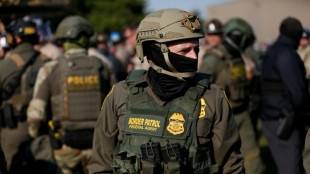
-
 Exiled Willis succeeds Dupont as Top 14 player of the season
Exiled Willis succeeds Dupont as Top 14 player of the season
-
Hamas and Israel open talks in Egypt under Trump's Gaza peace plan
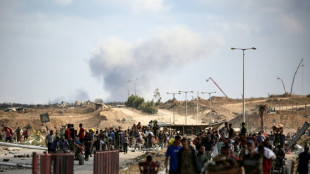
-
 Mbappe undergoing treatment for 'small niggle' at France camp: Deschamps
Mbappe undergoing treatment for 'small niggle' at France camp: Deschamps
-
Common inhalers carry heavy climate cost, study finds
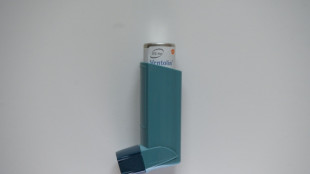
-
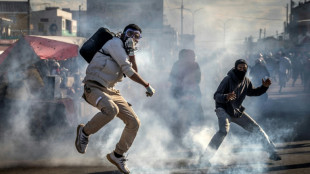 Madagascar president taps general for PM in bid to defuse protests
Madagascar president taps general for PM in bid to defuse protests
-
UEFA 'reluctantly' approves European league games in US, Australia

-
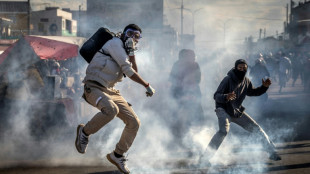 Hundreds protest in Madagascar as president to announce new premier
Hundreds protest in Madagascar as president to announce new premier
-
Greta Thunberg lands in Greece among Gaza flotilla activists deported from Israel

-
 UNESCO board backs Egyptian ex-minister for top job: official
UNESCO board backs Egyptian ex-minister for top job: official
-
Facing confidence vote, EU chief calls for unity

-
 Cash-strapped UNHCR shed 5,000 jobs this year
Cash-strapped UNHCR shed 5,000 jobs this year
-
Mbappe to have 'small niggle' examined at France camp: Deschamps

-
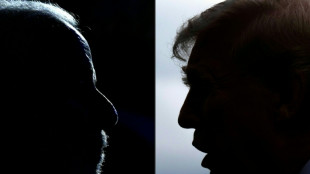 Brazil's Lula asks Trump to remove tariffs in 'friendly' phone call
Brazil's Lula asks Trump to remove tariffs in 'friendly' phone call
-
'Terrible' Zverev dumped out of Shanghai by France's Rinderknech
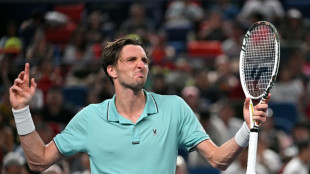
-
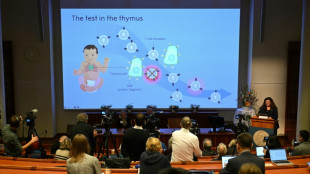 What are regulatory T-cells? Nobel-winning science explained
What are regulatory T-cells? Nobel-winning science explained
-
OpenAI signs multi-billion dollar chip deal with AMD


Under a drone canopy, Ukraine army medics rely on robots and luck
When Magician, a Ukrainian serviceman, was remotely steering a robot hauling a wounded soldier away from the front line towards safety, the worst-case scenario played out on his monitor.
The 27-year-old, who asked AFP to identify him by his call sign in line with military protocol, was navigating the bot on a journey with life-or-death stakes when grey smoke appeared on his control screen. His machine had hit a mine.
The proliferation of cheap but deadly drones deployed by Russian and Ukrainian forces has irreversibly changed how the war is being waged -- including how frontline medics retrieve the wounded from the battlefield.
"For five minutes, that person's death was on my conscience," Magician told AFP.
He believed in that moment the mission -- and the soldier's life -- were lost.
The canopy of killer drones blanketing the skies over the front line is forcing military medics to find new ways to move wounded to field hospitals for treatment, including by robot.
At the beginning of Russia's full-scale invasion in early 2022, medics could rush onto the battlefield and carry hurt troops out by stretcher or vehicles.
Drones have made that almost impossible.
Military medic Olena Ivanenko recounted painful episodes when she was unable to reach wounded soldiers less than one kilometre (half-a-mile) away.
"I was hearing their voices on the radio and yet I couldn't do anything," she said.
- 'You're too far' -
The "kill zone," where drones make any movement potentially fatal, stretches for up to 10 kilometres (6 miles) behind the front line on the Ukrainian side, analysts say.
"When a brother or sister dies, it's already done. You can't bring them back, but when there is a chance to save someone and you can't do it because you're too far -- that's very tough," said Ivanenko, a medic with Ukraine's 412th regiment.
The excruciating helplessness has forced medics to get creative in their work.
Ivanenko said her unit often sends food or medication to stranded service members by aerial drone, even sending syringes filled with medicine and explaining remotely how to administer it.
Evacuation robots like Magician's are part of the solution, but only skilled operators can carry out delicate missions.
"It must be done verycarefully you shouldn't make any sudden movements," said Krop, a robot operator in the 5th brigade who also used his military call-sign.
At a training ground in eastern Ukraine, he demonstrated to AFP the nimble movements the robots are capable of, steering it via a hand-held controller complete with a screen and triggers on the sides.
Krop sent the robot ploughing through a sunflower field, and spun the machine in one spot while another pilot held on to the platform for carrying the wounded.
- 'Shaking' -
Their attitudes shift on mission said Bot, a pilot in the 5th brigade.
"It's someone's life," the 24-year-old told AFP. "It's not just a game or a toy. We're not playing."
The robots are slow, which means Russian drones can easily locate and target them, that is if they don't hit mines.
The toll of failed evacuations -- of lives lost -- weighs heavily on the pilots.
"You get half-an-hour of self-flagellation, and then you think 'dammit, it was the bastards who killed them. I wasn't the one who shot them'," Magician said.
Magician thought all was lost when his bot carrying the wounded soldier hit the mine.
But staring at the monitor showing plumes of smoke billowing from the vehicle, he saw a figure crawling to safety and the team dispatched another robot.
"At that moment you're driving and your whole body is shaking -- except the fingers holding the joystick," Magician said.
The return journey lasted hours, including moments that were painful for the wounded soldier, over potholes, dips and bumps.
"I felt a little sorry for him. Fifteen kilometres in a shaking basket isn't very comfortable," Magician said.
"But I pulled him out."
J.Marty--VB
